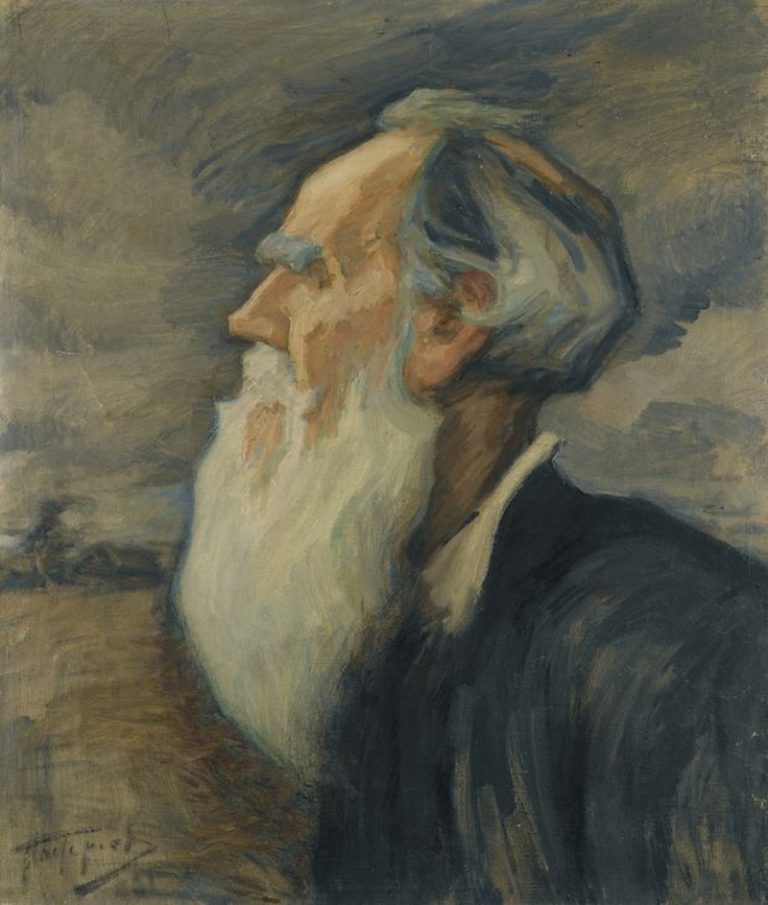Leo Tolstoy Archive
Written: 1912
Source: The Forged Coupon: And Other Stories, by Leo Tolstoy, 1912, Translated from the Russian by Herman Bernstein, published by Ogilvie Publishing Company, 57 Rose Street, New York, produced for Gutenberg.org by Judith Boss and David Widger, 2006.
Transcription/Markup: Andy Carloff
Online Source: RevoltLib.com; 2021

During the first month in prison Stepan suffered from the same agonizing vision. He saw the gray wall of his cell, he heard the sounds of the prison; the noise of the cell below him, where a number of convicts were confined together; the striking of the prison clock; the steps of the sentry in the passage; but at the same time he saw HER with that kindly face which conquered his heart the very first time he met her in the street, with that thin, strongly-marked neck, and he heard her soft, lisping, pathetic voice: “To destroy somebody’s soul . . . and, worst of all, your own. . . . How can you? . . .”
After a while her voice would die away, and then black faces would appear. They would appear whether he had his eyes open or shut. With his closed eyes he saw them more distinctly. When he opened his eyes they vanished for a moment, melting away into the walls and the door; but after a while they reappeared and surrounded him from three sides, grinning at him and saying over and over: “Make an end! Make an end! Hang yourself! Set yourself on fire!” Stepan shook all over when he heard that, and tried to say all the prayers he knew: “Our Lady” or “Our Father.” At first this seemed to help. In saying his prayers he began to recollect his whole life; his father, his mother, the village, the dog “Wolf,” the old grandfather lying on the stove, the bench on which the children used to play; then the girls in the village with their songs, his horses and how they had been stolen, and how the thief was caught and how he killed him with a stone. He recollected also the first prison he was in and his leaving it, and the fat innkeeper, the carter’s wife and the children. Then again SHE came to his mind and again he was terrified. Throwing his prison overcoat off his shoulders, he jumped out of bed, and, like a wild animal in a cage, began pacing up and down his tiny cell, hastily turning round when he had reached the damp walls. Once more he tried to pray, but it was of no use now.
The autumn came with its long nights. One evening when the wind whistled and howled in the pipes, Stepan, after he had paced up and down his cell for a long time, sat down on his bed. He felt he could not struggle any more; the black demons had overpowered him, and he had to submit. For some time he had been looking at the funnel of the oven. If he could fix on the knob of its lid a loop made of thin shreds of narrow linen straps it would hold. . . . But he would have to manage it very cleverly. He set to work, and spent two days in making straps out of the linen bag on which he slept. When the guard came into the cell he covered the bed with his overcoat. He tied the straps with big knots and made them double, in order that they might be strong enough to hold his weight. During these preparations he was free from tormenting visions. When the straps were ready he made a slip-knot out of them, and put it round his neck, stood up in his bed, and hanged himself. But at the very moment that his tongue began to protrude the straps got loose, and he fell down. The guard rushed in at the noise. The doctor was called in, Stepan was brought to the infirmary. The next day he recovered, and was removed from the infirmary, no more to solitary confinement, but to share the common cell with other prisoners.
In the common cell he lived in the company of twenty men, but felt as if he were quite alone. He did not notice the presence of the rest; did not speak to anybody, and was tormented by the old agony. He felt it most of all when the men were sleeping and he alone could not get one moment of sleep. Continually he saw HER before his eyes, heard her voice, and then again the black devils with their horrible eyes came and tortured him in the usual way.
He again tried to say his prayers, but, just as before, it did not help him. One day when, after his prayers, she was again before his eyes, he began to implore her dear soul to forgive him his sin, and release him. Towards morning, when he fell down quite exhausted on his crushed linen bag, he fell asleep at once, and in his dream she came to him with her thin, wrinkled, and severed neck. “Will you forgive me?” he asked. She looked at him with her mild eyes and did not answer. “Will you forgive me?” And so he asked her three times. But she did not say a word, and he awoke. From that time onwards he suffered less, and seemed to come to his senses, looked around him, and began for the first time to talk to the other men in the cell.